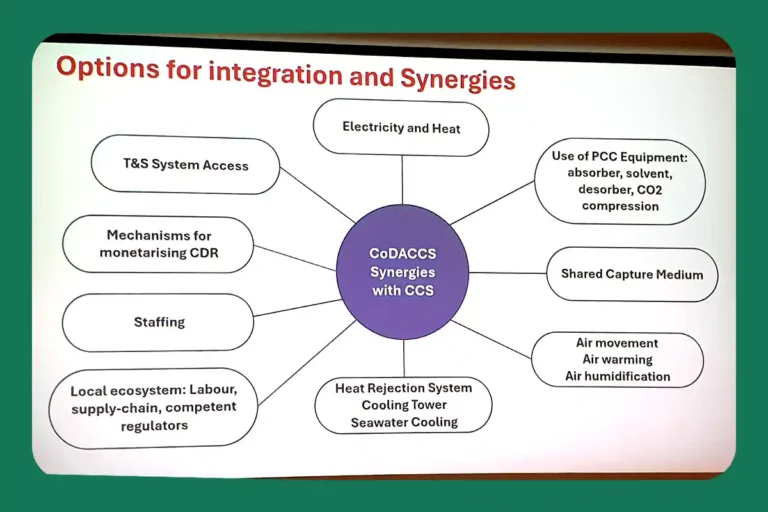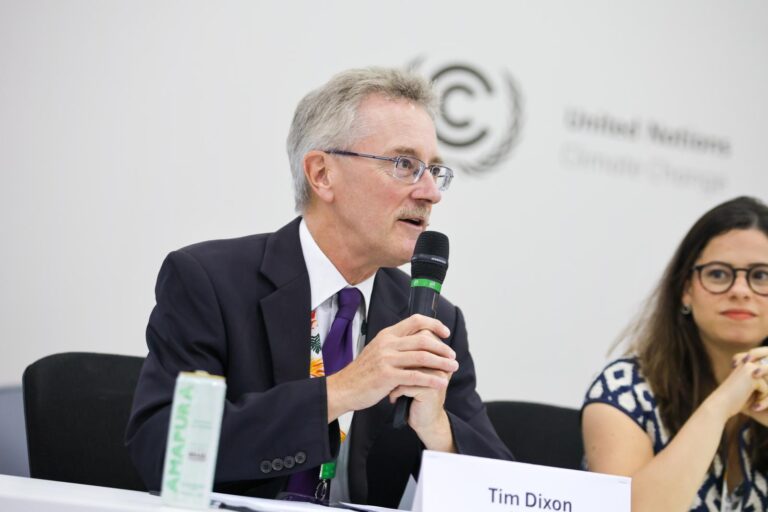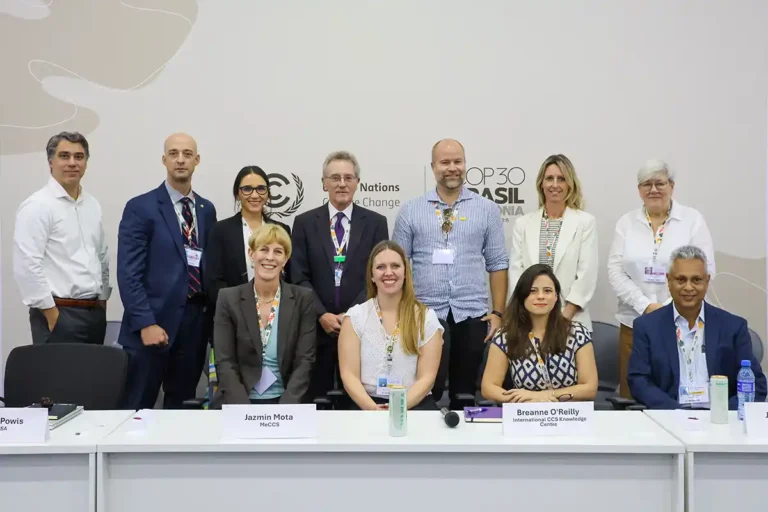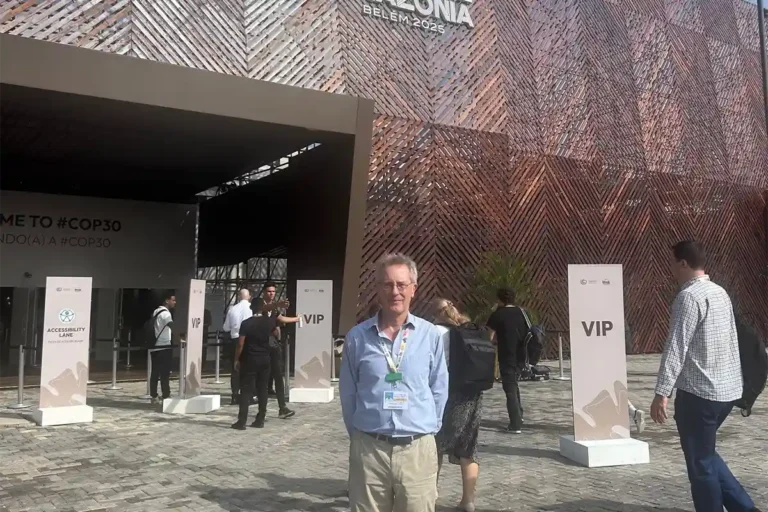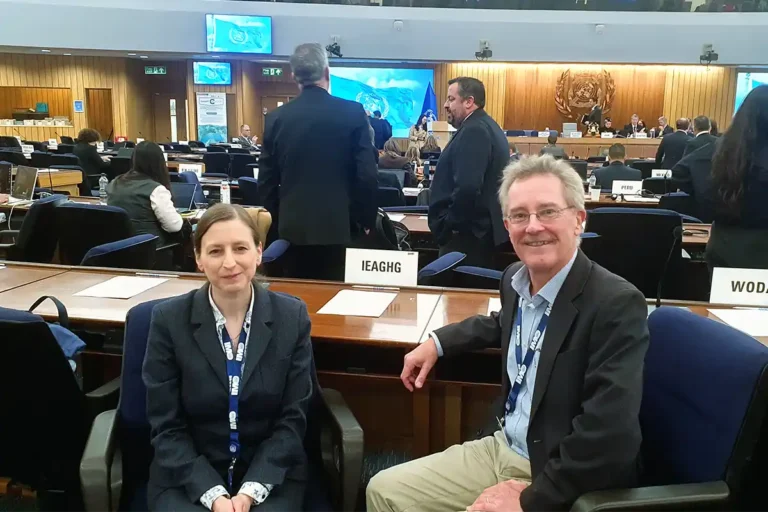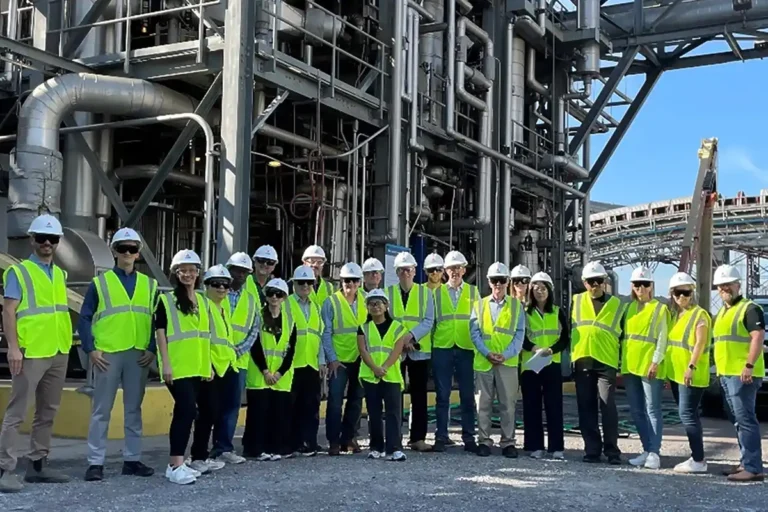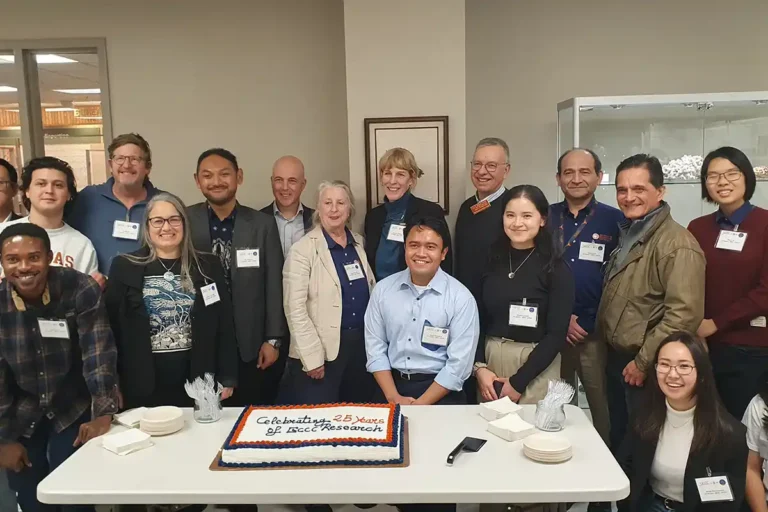
2023 FECM / NETL Carbon Management Research Project Review Meeting
7 September 2023
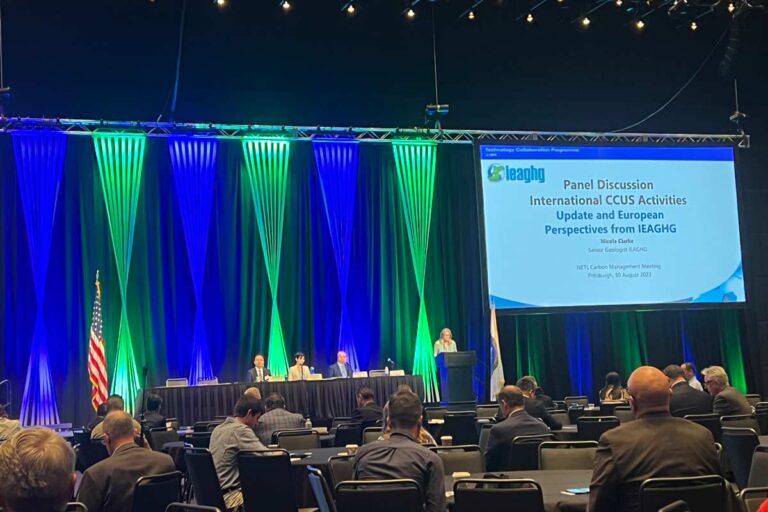
This year’s Carbon Management Research Project Review Meeting was held from 28th August – 1st September 2023 in Pittsburgh, USA, and showcased knowledge and insights gained by more than 150 Department of Energy-sponsored research and development (R&D) projects from the following Office of Fossil Energy & Carbon Management (FECM) R&D programmes: Point Source Carbon Capture, Carbon Dioxide Removal, Carbon Conversion, and Carbon Transport & Storage. This week-long event was structured around plenary and panel sessions, multi-disciplinary breakout sessions and poster sessions to provide detailed insights into the wealth of projects under the FECM programme. Throughout the week, 1200 attendees learned more about the practical solutions for real-life problems and more details on these technologies that are essential for net zero by 2050. Five plenary panel sessions were held, looking at federal initiatives and crosscutting activities in CCUS, transitioning to a low carbon economy, decarbonising power and heavy industry, international CCUS activities, and community engagement. With such a jampacked agenda it’s tough to summarise everything learnt in just a blog post, so the below details just some of the key takeaways from the plenary sessions throughout the week.
Federal initiatives and crosscutting activities in CCUS
Panellists from NETL, FECM, the Office of Clean Energy Demonstrations (OCED), the Pipeline and Hazardous Materials Safety Administration (PHMSA) and the White House joined moderator Sarah Forbes (Director for Carbon Capture Utilization and Sequestration at the White House Council on Environmental Quality) for an informative and enthusiastic session on US federal initiatives relating to CCS.
The US Office of Fossil Energy and Carbon Management (OFEM) looks at the whole carbon management chain, aiming to unlock the potential of carbon management as a climate solution whilst recognising the importance of cost-effectiveness and reliability. The focus now is on catalysing investment, with a new type of stakeholder and potential investors becoming increasingly interested in carbon management. It was repeatedly recognised by panellists that deployment of all related technologies is essential for net zero by 2050, and NETL is committed to addressing all sectors. The amount of Class VI applications and dollars invested already signifies the value of this industry.
OCED, the Office of Clean Energy Demonstrations, was introduced to the audience: a new organisation under the US DOE with a focus on fostering relationships with the private sector to accelerate deployment, market adoption and the equitable transition to a decarbonised energy system.
A common theme throughout this plenary was that of pipelines and the importance of building such infrastructure throughout the US. AI technologies are helping with risk management, of particular importance when dealing with public concerns. Above all else, with all CCUS and related technologies, all must be done right, and done well.
Costas Samaras, Principal Assistant Director for Energy and OSTP Chief Advisor for the Clean Energy Transition at the White House, closed the first plenary morning by recognising that the 2020s are the decisive decade for CCUS. He noted that the US alone needs 400-1800 MMt/yr of CO₂ reduction, a $100 billion opportunity by 2030, expanding to $600 billion by 2050. The Inflation Reduction Act is the US’ most ambitious bill so far, with one of the largest incentives for CCUS in the world, along with the Bipartisan Infrastructure Law’s pledge to invest half a trillion dollars in the area.
Transitioning to a low-carbon economy
Session chair Mark Ackiewicz (US DOE, and one of IEAGHG’s member representatives) led this discussion on transitioning to a low carbon economy, welcoming speakers from the Electric Power Research Institute (EPRI), Breakthrough Energy, Marsh McLennan and Hunton Andrews Kurth LLP.
A strong message was clear: optionality is not optional on the path to net zero. All technologies – hydrogen, CCS, renewables and nuclear – are needed, and CCS is an important part of the puzzle. More certainty in financial mechanisms is needed, and robust regulations will also be needed for this. We will need compliance markets, along with strong legal frameworks, pipeline infrastructure, workforce development, and the development of policy and regulations to help, not hinder progress. It is crucial that policies align to have a uniform way of providing bonds, and consistent policy should align across all managing bodies of technologies and processes.
A common misconception is that insurers are unwilling to insure CCUS as they think it’s risky, but many legal and insurance representatives agreed that this is not the case. A two-pronged, holistic approach during operations can be (and is being!) implemented – business interruption insurance in addition to 45Q insurance – to provide robust coverage for all involved.
Decarbonising power and heavy industry
Panellists from US Steel Corporation, Heidelberg Materials, GE Vernova joined Dan Hancu (US DOE) to discuss these potentially tricky industries in terms of abatement. It was agreed that steel is hard to abate but completely essential for a low carbon economy, with US Steel introducing their ‘Best For All’ vision, with a strict GHG emissions target for 2030, followed by reaching net zero by 2050. Concrete is also essential for building a sustainable and resilient society, and this industry cannot meet emission or net zero targets without some implementation of CCS. GE Vernova noted that direct air capture technology using solid sorbents is capable of reducing treated air CO₂ levels from ~415ppm to <100ppm, signifying a valuable technology.
It was recognised that the US acts (i.e. the Inflation Reduction Act (IRA) and Bipartisan Infrastructure Law (BIL)) are working – industry is indeed seeing significant investment in CCUS projects. Long-term clarity around 45Q is important, as is the speed of implementation, improving technology readiness levels and fast permitting. All agreed that no one company can solve the problem – what is crucial is partnerships, collaboration, and cooperation. Under both the BIL and IRA, there will be significant opportunities to partner in the realm of emerging technologies.
Intermittency of renewables will be an issue; energy storage will be important but it is not the only answer, base load capabilities will also be needed.
International CCUS activities
IEAGHG’s very own Nikki Clarke led the well-received panel on updating the audience on international CCUS activities, joining on-stage speakers from Canada, Japan and China, whilst providing her update on European activities. Nikki recognised that there are currently >100 CCS projects in Europe in various stages of development. The Net Zero Industry Act has been introduced, with a target of 50 MT of CO₂ reduction by 2050 (excluding Norwegian activities), along with the Trans European Network for Energy (TEN-E) regulation; an EU scheme to promote cross border energy infrastructure, with 18 projects currently on the list. Carbon price is a strong driver for decarbonisation under the Emissions Trading Scheme (ETS), with a predicted rise to over €120 / tonne CO₂ by 2030. Nikki noted the increased interest in CCS has undoubtedly been fuelled by the recent increase in carbon price.
Canada’s 2030 target is for 40-45% reduction in emissions compared to 2005 levels, in a country that is well positioned to continue advancing carbon management activities, noting numerous projects already in action such as Quest, Boundary Dam 3, Weyburn, ACTL etc.
Japan is progressing with the Green Transformation (Gx) Promotion Act of May 2023 – to realise this, they need public and private investment. Under this act, plans are developing for CCS, CCUS, carbon recycling and DAC activities. The Japan CCS Roadmap of 2023 notes there are no current commercial projects but recognised their >10 years of experience with the Tomakomai project and their impact abroad with the Japanese industry contributing to CCUS efforts. Japan estimates they can achieve 120-240 MT of annual storage capacity by 2050 and are aiming for CCS business to start by 2030 with 7 projects planned.
China noted the requirement and potential of CCUS, with the country’s demand predicted at 2 GT by 2060. Their current CCUS status is that most technologies are at the industrial demonstration stage, with DAC, in particular, being in demonstration but needing further deployment. There are ~100 CCUS projects in operation or planning. However, some challenges remain, such as key technologies not being mature enough and deployment is lacking at large scale. All panellists, particularly China, recognised that clusters may help with many of the challenges faced globally in CCUS.
Community engagement
Brad Crabtree (US DOE) joined panellists from Calpine, Carbon Solutions, CapturePoint Solutions, Vernon Parish School Board and the United Association of Plumbers and Pipefitters, introducing the US DOE’s Community Benefit Plans (CBPs) which must be implemented on all current and future DOE-funded projects going forward. These CBPs have four parts: community engagement, diversity equality inclusion, workplace standards and development, and implementation of the Justice 40 programme.
In terms of community engagement there are several key steps for success: know your audience, understand the community, start with high-level conversations and proactive engagement, and note that different audiences have different concerns. Gather feedback and information, then integrate it into plans for progress. Projects should build AND maintain the relationship with the local community, being honest and transparent, staying engaged and responsive, and ensuring you can allocate ongoing resources to the engagement activities throughout the project lifespan.
All agreed that community commitments matter, partner cooperation matters, and responsible deployment of CCUS matters.
Other articles you might be interested in
Get the latest CCS news and insights
Get essential news and updates from the CCS sector and the IEAGHG by email.
Can’t find what you are looking for?
Whatever you would like to know, our dedicated team of experts is here to help you. Just drop us an email and we will get back to you as soon as we can.
Contact Us NowOther articles you might be interested in
Get the latest CCS news and insights
Get essential news and updates from the CCS sector and the IEAGHG by email.
Can't find what you are looking for?
Whatever you would like to know, our dedicated team of experts is here to help you. Just drop us an email and we will get back to you as soon as we can.
Contact Us Now

